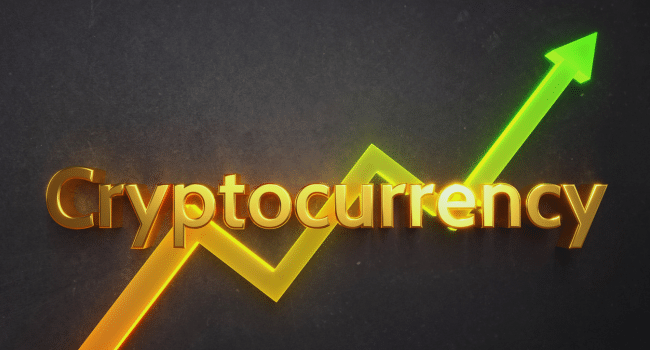Table of Contents
Introduction: Hungary’s Crypto Landscape in 2025
In 2025, Hungary finds itself at a unique crossroads in the world of cryptocurrency. While not a global leader in digital asset adoption, Hungary has steadily embraced blockchain technology and the opportunities it brings. From updated tax regulations to an increasing number of crypto investors, the local crypto scene is expanding—and becoming more visible.
This blog explores the state of crypto in Hungary today, including how to get started, what legal aspects to be aware of, and what opportunities lie ahead for Hungarian users and businesses alike.
1. The Rise of Crypto in Central Europe: Where Does Hungary Stand?
Central and Eastern Europe have seen growing interest in cryptocurrency, with countries like Poland, Czechia, and Romania witnessing surging adoption rates. Hungary, while slightly behind in adoption, is catching up—especially in urban centers like Budapest, where fintech culture thrives.
Factors driving Hungary’s crypto growth include:
- The rise of decentralized finance (DeFi) tools
- A younger population exploring new asset classes
- Increasing demand for financial autonomy and digital alternatives
2. Hungarian Crypto Adoption: What the Numbers Say
Recent surveys suggest that 6–8% of Hungarian adults have either bought or traded cryptocurrency, with higher interest among the 25–39 age group. While the numbers aren’t staggering, they’re trending upward, supported by social media education, international trends, and localized platforms.
Many Hungarians are also passively engaging with crypto through fintech apps and crypto debit cards that offer cashback in digital currencies.
3. What Coins Are Popular in Hungary?
Bitcoin (BTC) and Ethereum (ETH) dominate the Hungarian crypto scene, but altcoins are not far behind. Some of the commonly held and traded coins in Hungary include:
- Solana (SOL) – Popular among younger investors for its speed and lower fees.
- Ripple (XRP) – Known for its use in international payments.
- Polygon (MATIC) – Attracts interest from developers and NFT communities.
Stablecoins like USDT and USDC are also gaining attention for being safer storage of value in volatile times.
4. Government Stance: Crypto Isn’t Illegal, But It’s Watched Closely
The Hungarian government has not banned crypto. In fact, the stance has gradually evolved from skepticism to cautious openness.
The Hungarian National Bank (MNB) has issued several warnings over the years about the risks associated with cryptocurrencies, including scams, fraud, and volatility. However, there has been no push for outright bans—unlike in some non-EU countries.
Instead, the focus has shifted to regulatory clarity and tax enforcement, aiming to keep the space safe while allowing innovation to flourish.
5. Hungarian Crypto Taxation in 2025: A Simplified Approach
Since 2022, Hungary has implemented a flat 15% capital gains tax on cryptocurrency profits, which remains in place in 2025. This is significantly more favorable than the previous 30.5% tax structure (including social contribution tax), making Hungary a more crypto-friendly destination.
Key things to know:
- Only realized gains are taxed (i.e., when you convert crypto to fiat or other assets).
- Losses can be carried forward.
- Crypto mining is considered self-employment income and taxed accordingly.
Hungarian taxpayers are expected to report crypto activity on their annual tax return, and NAV (the National Tax and Customs Administration) has started actively monitoring crypto platforms for compliance.
6. EU-Wide Impact: MiCA and Its Relevance to Hungary
Hungary, as an EU member state, is also subject to upcoming European crypto regulations under MiCA (Markets in Crypto Assets), set to take full effect by the end of 2025.
MiCA aims to:
- Standardize crypto rules across EU countries
- Improve investor protection
- Regulate stablecoins and crypto service providers
For Hungarian users, this means:
- More transparency from crypto exchanges
- Easier cross-border crypto operations within the EU
- Likely stricter KYC/AML compliance from 2025 onward
7. How to Buy Crypto in Hungary: A Beginner’s Guide

Hungarians can access both international and regional exchanges. Here’s how to get started:
Step 1: Choose a Crypto Exchange
Some platforms available to Hungarian users include:
- Binance
- Coinbase
- Kraken
- Bitstamp
- Crypto.com
Some newer Hungarian-focused platforms also offer services in the local language.
Step 2: Verify Your Identity
Almost all legitimate platforms require identity verification due to EU regulations (KYC).
Step 3: Deposit Fiat Currency
Bank transfer (SEPA) or credit/debit cards are commonly used in Hungary to fund accounts with HUF or EUR.
Step 4: Buy and Store Crypto
Once you purchase crypto, you can either:
- Keep it on the exchange (not recommended for large amounts)
- Move it to a software or hardware wallet (Ledger, Trezor, etc.)
For Hungarian-language guides and comparisons of wallets, platforms, and tax strategies, cryptoguide.hu is a trusted local resource.
8. Crypto Wallets and Security Tips for Hungarian Users
Protecting your crypto is essential. Here are best practices:
- Use 2FA (Two-Factor Authentication) on all exchanges and wallets.
- Avoid public Wi-Fi when accessing crypto platforms.
- Consider hardware wallets for long-term storage.
- Write down your recovery phrase on paper, not in a file on your computer.
Security literacy is still growing in Hungary, but incidents involving scams and phishing are rising—especially on Hungarian-language Telegram groups and Facebook pages. Always double-check URLs and avoid unsolicited offers.
9. Notable Hungarian Crypto Projects and Startups
Hungary may not be a crypto giant, but local innovation is beginning to thrive. Some interesting Hungarian projects include:
- INLOCK – A lending platform allowing users to earn interest or borrow using crypto collateral.
- Everprove – A platform for document verification on the blockchain.
- BlockBen – A fintech firm working on hybrid blockchain and gold-backed digital assets.
Budapest has also become a hotbed for blockchain meetups, hackathons, and educational events focused on crypto.
10. The Role of Education in Building Trust
Education is key to responsible adoption. In Hungary, more platforms and influencers are offering content in the local language, which helps demystify crypto for the average user.
Schools and universities are slowly introducing blockchain into their tech and finance curricula, and business communities are showing increasing curiosity.
The rise of trusted Hungarian resources (like blogs, Telegram communities, and YouTube channels) is helping bridge the knowledge gap and reduce fear-based resistance.
11. Crypto and Banking in Hungary: Still a Work in Progress
Some Hungarian banks have started to accept transactions from crypto exchanges, but the relationship remains inconsistent.
Most crypto traders rely on SEPA-friendly banks or fintech solutions like Revolut or Wise to manage fiat on/off ramps.
There are no crypto-friendly Hungarian banks as of 2025, though discussions are ongoing around digital asset custody services and integration.
12. NFTs, DeFi, and Web3 in the Hungarian Context
While Hungary isn’t leading the NFT boom, local artists and digital creators have dabbled in platforms like OpenSea and Rarible. A few Hungarian NFT projects have emerged, often tied to art, culture, or historical themes.
DeFi is less known among the general public, but developers and tech enthusiasts in Budapest have started contributing to global protocols.
13. What Are the Risks for Hungarian Crypto Investors?
Like anywhere else, Hungarian investors should be aware of:
- Volatility: Crypto markets can crash or surge unpredictably.
- Scams and phishing attacks: Especially in Hungarian-language groups offering “guaranteed returns.”
- Lack of investor protection: If you lose access to your wallet or fall victim to fraud, recovery is almost impossible.
- Overconfidence: Many first-time investors underestimate the complexity of crypto and invest too much too quickly.
14. Hungary’s Crypto Future: What Lies Ahead?
Hungary’s crypto future looks cautiously optimistic. With clearer taxation, better education, and support from the wider EU framework, the country is poised to take further steps in crypto adoption.
Potential future developments:
- Integration of blockchain into government systems (ID verification, land registry, etc.)
- More academic focus on crypto and blockchain
- Hungarian-language fintech solutions bridging the gap between traditional and decentralized finance
Hungary may not lead the charge globally, but its measured, informed approach offers a stable path toward growth in digital assets.
Conclusion: Hungary’s Place in the Global Crypto Movement
Cryptocurrency in Hungary has evolved from a fringe topic to a growing area of financial and technological interest. While regulation remains strict and adoption gradual, local users now have better access to tools, information, and opportunities than ever before.
Whether you’re just starting out or looking to deepen your crypto knowledge, Hungary offers a solid foundation in 2025 — backed by increasing transparency, community education, and EU-level innovation.
And if you’re looking for more guides, tips, and crypto insights tailored to Hungarian users, you can visit cryptoguide.hu.
